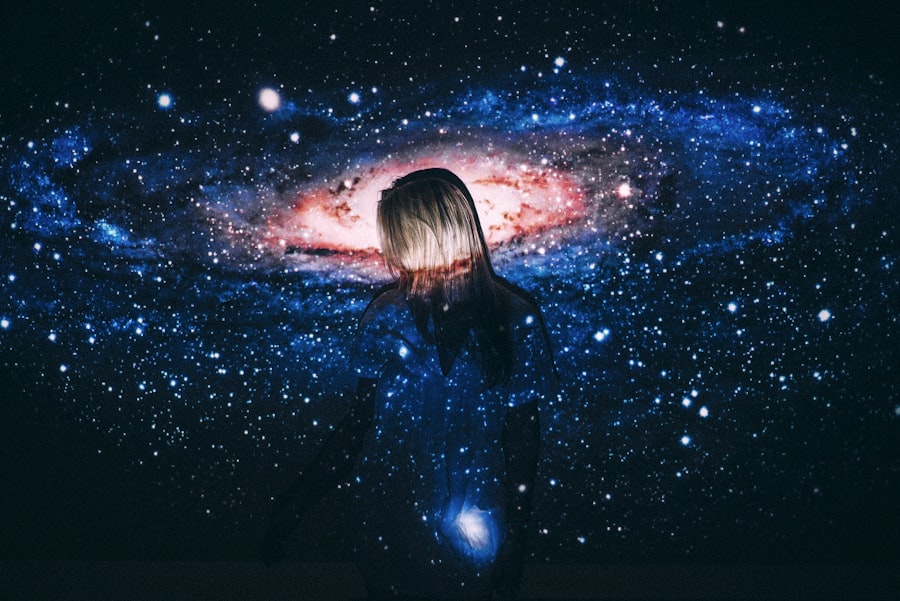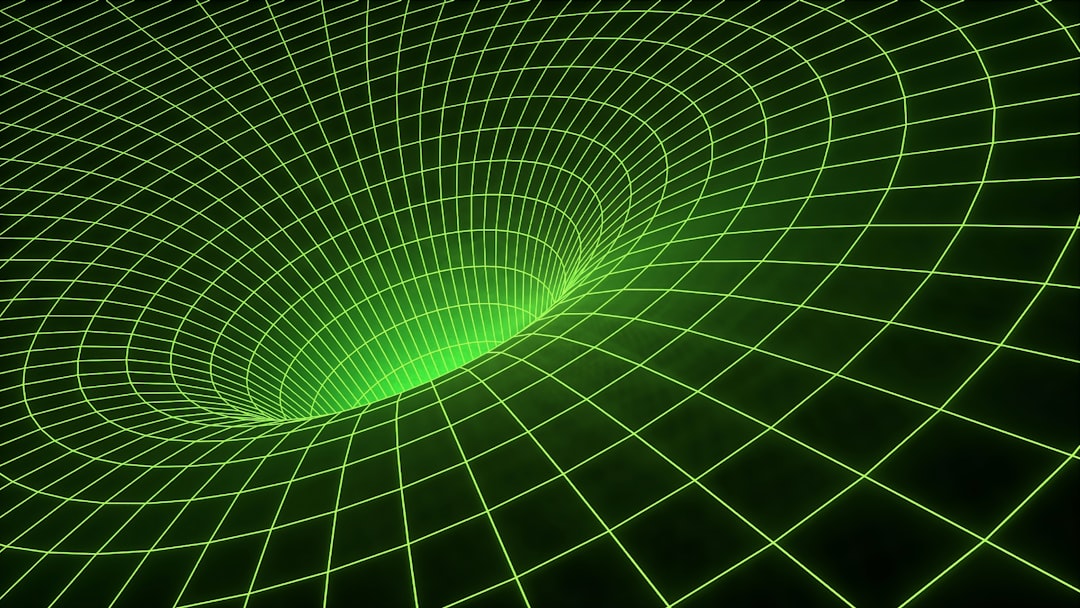As you delve into the fascinating realms of quantum physics and consciousness, you may find yourself standing at the intersection of science and philosophy. Quantum physics, a branch of physics that deals with the behavior of matter and energy at the smallest scales, challenges your conventional understanding of reality. It introduces concepts that defy classical logic, such as particles existing in multiple states simultaneously and the idea that observation can influence outcomes.
On the other hand, consciousness remains one of the most profound mysteries of human existence. It encompasses your thoughts, emotions, perceptions, and self-awareness, yet its nature and origin are still hotly debated among scientists and philosophers alike. The exploration of consciousness through the lens of quantum physics opens up a myriad of questions.
Could the principles governing the quantum realm provide insights into the workings of your mind? Is there a connection between the fundamental nature of reality as described by quantum mechanics and your subjective experience? As you embark on this intellectual journey, you will encounter various theories and hypotheses that attempt to bridge these two seemingly disparate fields.
The quest to understand consciousness through quantum physics not only challenges your perceptions but also invites you to reconsider what it means to be aware and alive in a universe governed by strange and counterintuitive laws.
Key Takeaways
- Quantum physics introduces concepts like uncertainty, entanglement, and superposition that challenge traditional views of consciousness.
- Observation plays a crucial role in quantum mechanics, suggesting a potential link between consciousness and physical reality.
- The quantum mind hypothesis proposes that quantum processes may underlie cognitive functions, though it remains controversial.
- Emerging research in quantum biology explores how quantum effects might influence biological systems, including the brain.
- Integrating quantum physics with Eastern philosophies offers new perspectives on the nature and future understanding of consciousness.
The Uncertainty Principle and its Implications for Consciousness
One of the cornerstones of quantum mechanics is the Heisenberg Uncertainty Principle, which posits that certain pairs of physical properties, like position and momentum, cannot be simultaneously measured with arbitrary precision. This principle suggests that at a fundamental level, reality is inherently uncertain. As you ponder this concept, consider how it might relate to your own consciousness.
Just as particles exist in a state of uncertainty until observed, your thoughts and perceptions may also be influenced by the act of observation or awareness. The implications of this principle extend beyond mere physics; they touch upon the very nature of your conscious experience. If reality is not fixed but rather exists in a state of potential until it is observed, could it be that your consciousness plays a role in shaping your reality?
This idea raises profound questions about free will, perception, and the nature of existence itself. As you explore these connections, you may find yourself contemplating whether your awareness is merely a passive observer or an active participant in the unfolding of reality.
Quantum Entanglement and its Potential Relevance to Consciousness

Quantum entanglement is another intriguing phenomenon that may hold relevance for understanding consciousness. When two particles become entangled, their states become interdependent regardless of the distance separating them. This means that a change in one particle’s state will instantaneously affect the other, even if they are light-years apart.
As you reflect on this concept, consider how it might parallel the interconnectedness of human consciousness. The idea that your thoughts and feelings could be entangled with those of others opens up fascinating possibilities for understanding empathy, intuition, and collective consciousness. Could it be that your mind is not an isolated entity but rather part of a larger web of consciousness?
This perspective invites you to explore how your experiences might resonate with those around you, suggesting that your individual consciousness is intricately linked to a broader collective experience. The implications of quantum entanglement extend beyond mere scientific curiosity; they challenge you to reconsider your place within the tapestry of existence.
The Role of Observation in Quantum Physics and its Relationship to Consciousness
| Aspect | Description | Key Metrics/Data | Relevance to Consciousness |
|---|---|---|---|
| Quantum Observation | Measurement or observation causing wavefunction collapse | Wavefunction collapse time: ~10^-15 to 10^-9 seconds Measurement precision: up to 10^-18 meters |
Raises questions about the observer’s role in determining physical reality |
| Double-Slit Experiment | Demonstrates particle-wave duality and effect of observation | Interference pattern visibility: 80-95% without observation Pattern disappears upon measurement |
Suggests observation affects physical outcomes, linking to consciousness debates |
| Quantum Decoherence | Process by which quantum systems lose coherence due to environment | Decoherence timescale: 10^-20 to 10^-6 seconds depending on system | Explains apparent wavefunction collapse without invoking consciousness |
| Observer Effect | Impact of measurement on quantum system state | Measurement disturbance: varies, often minimal but non-zero | Challenges classical notion of objective reality independent of observation |
| Consciousness-Related Interpretations | Interpretations suggesting consciousness causes collapse (e.g., Wigner’s interpretation) | No direct empirical data; largely philosophical and theoretical | Proposes consciousness as fundamental in shaping physical reality |
| Many-Worlds Interpretation | All possible outcomes occur, no collapse; observation splits universes | Consistent with quantum mechanics predictions; no collapse time | Removes consciousness from collapse role, emphasizing physical processes |
In quantum mechanics, the act of observation plays a crucial role in determining the state of a system. When you observe a quantum particle, it collapses from a state of superposition into a definite state. This phenomenon raises intriguing questions about the relationship between observation and consciousness.
Is it possible that your conscious awareness is integral to the process of reality formation? As you contemplate this idea, consider how your perceptions shape your understanding of the world around you. The relationship between observation and consciousness suggests that your awareness may not merely reflect reality but actively participate in its creation.
This notion challenges traditional views that separate observer from observed, inviting you to explore a more interconnected understanding of existence. If your consciousness influences reality through observation, what does this mean for your agency and responsibility? As you navigate these questions, you may find yourself reevaluating the nature of perception and its role in shaping both personal and collective experiences.
Quantum Superposition and its Connection to the Nature of Consciousness
Quantum superposition refers to the ability of particles to exist in multiple states simultaneously until measured or observed. This concept can serve as a metaphor for the complexity of your own consciousness. Just as particles can embody various possibilities at once, your thoughts, emotions, and experiences can coexist in a dynamic interplay within your mind.
As you explore this connection, consider how superposition might reflect the multifaceted nature of your own identity. The idea that your consciousness can encompass multiple perspectives or states simultaneously invites you to embrace complexity rather than seek simplistic answers. It encourages you to acknowledge the various aspects of yourself—your desires, fears, aspirations, and doubts—that coexist within your mind.
This understanding can lead to greater self-awareness and acceptance as you recognize that just like quantum particles, you are not confined to a single state but rather embody a rich tapestry of experiences and possibilities.
Quantum Tunneling and its Possible Influence on Consciousness

Quantum tunneling is a phenomenon where particles can pass through energy barriers that would typically be insurmountable according to classical physics. This concept can serve as an intriguing metaphor for overcoming obstacles in your own life and consciousness. Just as particles can “tunnel” through barriers, you too have the potential to transcend limitations imposed by societal norms or personal fears.
As you reflect on quantum tunneling in relation to consciousness, consider how it might inspire you to break free from mental constraints. The ability to navigate challenges creatively and intuitively mirrors the behavior of particles that defy conventional expectations. This perspective encourages you to embrace uncertainty and explore new pathways in your thinking and decision-making processes.
The Quantum Mind Hypothesis and its Controversy in the Scientific Community
The Quantum Mind Hypothesis posits that quantum processes may play a fundamental role in cognitive functions such as consciousness and decision-making. This theory has sparked considerable debate within the scientific community, with proponents arguing that quantum mechanics could explain phenomena like creativity and intuition that classical neuroscience struggles to address. As you engage with this hypothesis, consider both its potential implications and criticisms.
Critics argue that while quantum mechanics offers intriguing insights into fundamental aspects of reality, applying these principles directly to consciousness may be overly ambitious or speculative. They caution against conflating complex cognitive processes with quantum phenomena without substantial empirical evidence. As you navigate this controversy, it becomes essential to maintain an open yet critical mindset—recognizing the potential for groundbreaking discoveries while also acknowledging the need for rigorous scientific inquiry.
Quantum Biology and its Implications for the Study of Consciousness
Quantum biology is an emerging field that explores how quantum phenomena influence biological processes. From photosynthesis to avian navigation, researchers are uncovering ways in which quantum mechanics plays a role in life itself. As you consider these findings, think about how they might inform our understanding of consciousness as a biological phenomenon.
The implications of quantum biology extend beyond mere curiosity; they challenge traditional views on how life operates at a fundamental level. If quantum processes are integral to biological functions, could they also be relevant for understanding consciousness? This perspective invites you to explore how life’s intricate systems might be interconnected with the principles governing the quantum realm.
By examining these connections, you may gain deeper insights into the nature of consciousness as an emergent property arising from complex biological interactions.
The Quantum Brain: Exploring the Possibility of Quantum Processes in the Brain
The idea that quantum processes could occur within the brain has garnered attention from researchers seeking to understand consciousness more deeply. Some theorists propose that microtubules—structural components within neurons—may facilitate quantum coherence, potentially influencing cognitive functions such as perception and decision-making. As you explore this concept, consider what it means for our understanding of brain function and consciousness.
If quantum processes do indeed play a role in brain activity, it could revolutionize our approach to neuroscience and psychology. You might find yourself contemplating how this perspective challenges traditional models that view brain function solely through classical mechanics. The possibility that consciousness arises from both classical and quantum interactions invites you to think about the mind as a complex system influenced by multiple layers of reality—an intricate dance between the macroscopic and microscopic realms.
Quantum Mechanics and Eastern Philosophical Views on Consciousness
As you explore the intersections between quantum mechanics and consciousness, it’s worth considering how Eastern philosophical traditions resonate with these ideas. Concepts such as non-duality in Buddhism or interconnectedness in Taoism echo themes found within quantum physics—particularly notions of entanglement and superposition.
By examining these parallels, you may find yourself drawn to a more holistic understanding of consciousness—one that transcends binary thinking and embraces complexity. Eastern philosophies encourage mindfulness and awareness as pathways to deeper understanding, aligning with ideas from quantum physics about observation’s role in shaping reality. This synthesis invites you to reflect on how ancient wisdom can inform contemporary scientific inquiries into consciousness.
The Future of Quantum Physics and its Impact on our Understanding of Consciousness
As you look ahead to the future of quantum physics, consider its potential impact on our understanding of consciousness. Ongoing research continues to unveil new dimensions within both fields—challenging existing paradigms while opening doors to innovative perspectives. The interplay between science and philosophy will likely deepen as researchers strive to unravel the mysteries surrounding consciousness through quantum principles.
In this evolving landscape, you may find yourself inspired by the possibilities that lie ahead—whether it’s exploring new theories or engaging with interdisciplinary approaches that bridge science with philosophy or spirituality. The journey toward understanding consciousness is far from over; it invites you to remain curious and open-minded as new discoveries unfold before us. Ultimately, embracing this complexity may lead not only to greater insights into consciousness but also to a richer appreciation for the intricate tapestry of existence itself.
The intriguing question of whether quantum physics can explain consciousness has sparked considerable debate among scientists and philosophers alike. A related article that delves into this topic can be found on Freaky Science, which explores the intersection of quantum mechanics and the nature of consciousness. For more insights, you can read the article [here](https://www.freakyscience.com/sample-page/).
WATCH THIS! Your Brain Is Not Real (The Receiver Theory)
FAQs
What is quantum physics?
Quantum physics is a branch of physics that studies the behavior of matter and energy at the smallest scales, such as atoms and subatomic particles. It describes phenomena that cannot be explained by classical physics, including wave-particle duality, superposition, and entanglement.
What is consciousness?
Consciousness refers to the state of being aware of and able to think about oneself, the environment, and experiences. It encompasses aspects such as perception, self-awareness, and the ability to have subjective experiences.
Does quantum physics currently explain consciousness?
As of now, there is no scientific consensus that quantum physics explains consciousness. While some theories propose that quantum processes might play a role in brain function and consciousness, these ideas remain speculative and lack definitive empirical support.
What are some theories linking quantum physics and consciousness?
Some notable theories include the Orchestrated Objective Reduction (Orch-OR) theory proposed by Roger Penrose and Stuart Hameroff, which suggests that quantum computations in microtubules within neurons contribute to consciousness. However, these theories are controversial and not widely accepted in the scientific community.
Why is it challenging to connect quantum physics with consciousness?
The brain operates at scales and temperatures where quantum coherence is difficult to maintain, making it challenging to demonstrate that quantum effects influence neural processes. Additionally, consciousness is a complex and not fully understood phenomenon, complicating efforts to link it directly to quantum mechanics.
Are there ongoing studies about quantum physics and consciousness?
Yes, researchers continue to explore the potential connections between quantum phenomena and consciousness through theoretical models and experimental investigations. However, this research is still in early stages and has not produced conclusive evidence.
What is the mainstream scientific view on consciousness?
Most scientists study consciousness through neuroscience, cognitive science, and psychology, focusing on brain activity, neural networks, and information processing without invoking quantum mechanics. The mainstream view treats consciousness as an emergent property of complex brain functions.
Can quantum physics explain subjective experiences?
Currently, quantum physics does not provide an explanation for subjective experiences or qualia—the personal, first-person aspects of consciousness. Understanding subjective experience remains a major challenge in both philosophy and science.
